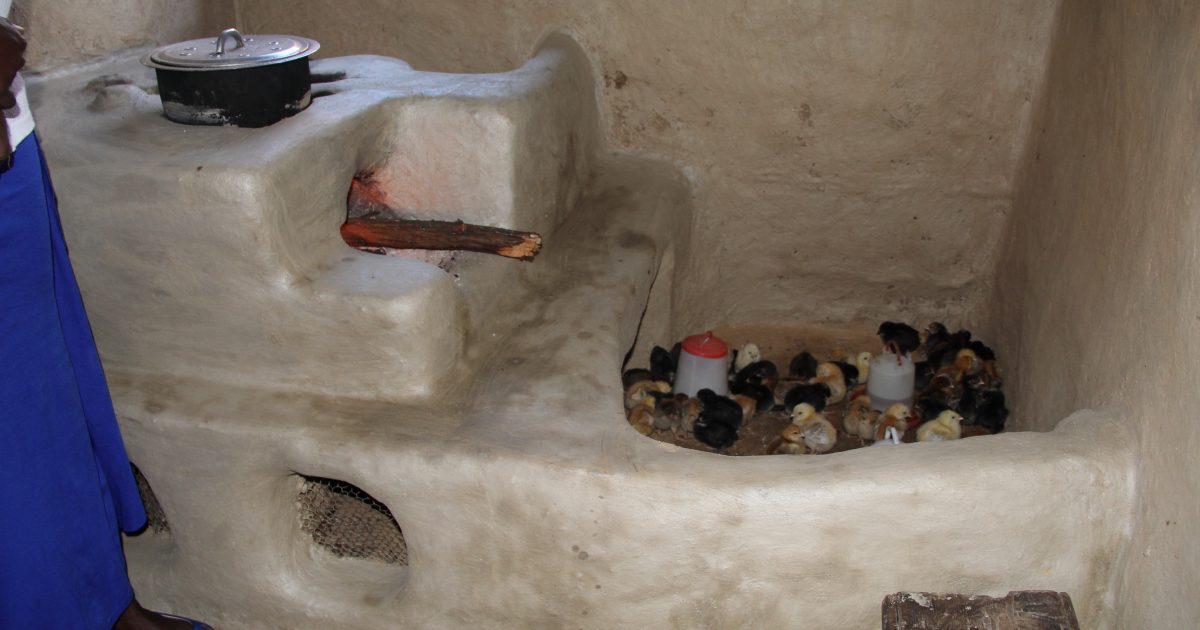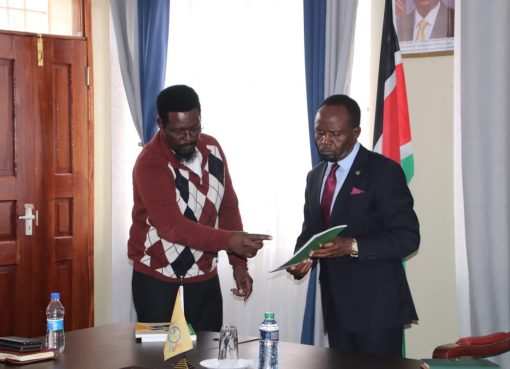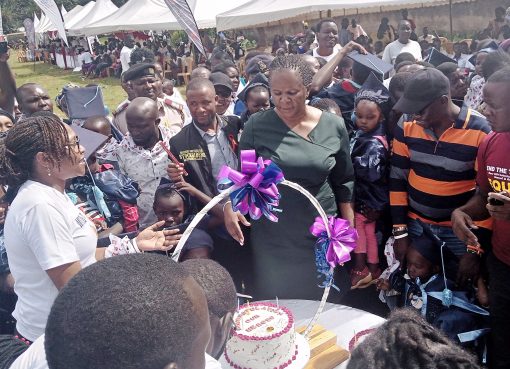It’s 9.15 am, when we arrive at Ms. Ann Cheptoos’ home, which is about 17 kilometers rough road from Nanyuki town, where we meet her busy tending her 100 chicks.
Before granting us time, she has to ensure they all have enough water and feed to last for the day. She says that is her daily routine.
Ms. Cheptoo is one of the beneficiaries of the improved chicken brooder in Umande ward, Laikipia County, a project by the UN Women economic empowerment through Climate Smart Agriculture in Arid and Semi-Arid areas, (ASALs).
She tells Kenya News Agency that the brooder, which is made by use of locally available materials like sand, pieces of woods and old clothing, has made her work easy and at the same time maximized profit on her improved chicks’ business.
“Earlier, the chicks were loitering from one place to another and sometimes they could be eaten by predators resulting in losses, but with the jiko, they are convened in one area once they are hatched until they are ready for the market,” says Ms. Cheptoo, adding that the brooder uses less firewood and keeps the chicks warm.
Ms. Cheptoo adds that when starting the group with the support of Climate Smart Agriculture project, they bought 355 improved chicks from Kukuchick Company in Eldoret.
The improved brooder which also acts as cooking jiko is nicknamed “Chepkube”. Ms Cheptoo who doubles as a member of Ogilgel women self-help group reveals they learnt from West Pokot County on how to make the traditional chicken brooders.
“Chepkube has improved by economical sustainability and I am able to take care of my family,” says Ms. Cheptoo who is also a mother of three kids, adding that she has mastered the technology and she trains other community members at a small fee and those who want one, she makes at Sh5000.
Ms. Cheptoo notes, one Chepkube can hold up to hundreds of chicks at a go.
The 33-year-old reveals that she sometimes buys one day chicks at Sh100, rears them in the traditional brooder for a month and later sells them at a profit of Sh250 each to the residents. She notes, in a good month, she can sell up to 50 chicks. However, her only challenge is the high cost of chicken feed.
Ogilgel women SHG chairlady Ms. Agnes Cherotich says, the group has about 20 members and they got registered in 2015 but for poultry farming by use of traditional brooder, the idea was conceived in 2020 after they realized they were not making any progress in their venture.
“Our lives have improved when a women economic empowerment project was initiated here. Apart from chicken farming, kitchen vegetable gardens were introduced,” notes the chairlady.
Away from poultry and vegetable farming, the chairlady says, the group practices table banking and gives out loans to members at an affordable interest rate.
She reveals, they were further trained on group dynamics and leadership, Agri-nutrition, soil and water management among others
Ms. Cherotich encourages other women in her community to join them and expand their group to a Community Based Organization (CBO) to maximize profit.
They are optimistic that in five years’ time, they will start a chicken slaughtering company in the region.
Deputy Country Representative- UN Women Kenya Ms. Rukaya Mohammed said that they target to implement climate smart agriculture in ASALs region to enhance food security and sustainability.
“The UN Women project on economic empowerment aims at reducing burden on women and generating income to support their livelihood,” said Ms. Rukaya.
She however decried that women in the ASAL region face challenges of land ownership and thus can’t make decisions on their own.
“I have noticed the majority of women are farmers but they don’t own land. We need to continue raising awareness on both men and women in bid to ensure there is a shared benefit,” said the director.
Food and Agriculture Organization (FAO) Kenya representative Ms. Carla Mucavi said, they had offered technical support to the beneficiaries.
“We are improving the skills of the beneficiaries through climate smart agriculture and it’s very important in ASALs region. We need to find innovative ways of producing seeds that are drought resistance,” said Ms. Mucavi.
Ms. Mucavi revealed they started the women economic empowerment project in the wake of covid-19 which was quite challenging, however, through government support and other stakeholders, they were able to kick off the project.
“It was really hard in the lockdown but that didn’t stop us from supporting the communities because it was then we realized they needed more intervention on food security,” the FAO director said.
She encouraged youths to step out from their comfort zone and venture in agriculture since it’s cheap to start and requires less capital.
Korea International Cooperation Agency (KOICA) Kenya director Janghee Im said the Korean government had invested about $4.4 million to address rights of women in ASALs areas and to promote the use of climate smart agriculture technologies.
“This project has a significant role to KOICA in helping women who are considered non- benefiting from social economic structures in ASALs regions,” revealed Im.
He further noted they are implementing similar climate smart agriculture technologies in counties of West Pokot and Kitui.
County director in charge of livestock production Pius Mutishi said they would help the women with disease control and train them on making animal feeds.
Apart from chicken farming and kitchen garden, FAO, KOICA and UN Women have partnered to support 800 beneficiaries drawn from over 15 women self-help groups in the region on daily goat keeping, dorper sheep, and farming of potatoes and beans.
By Muturi Mwangi





